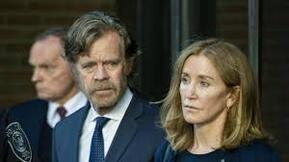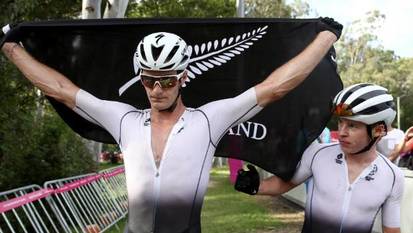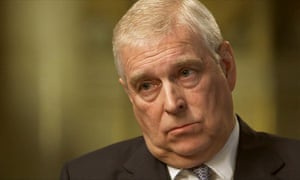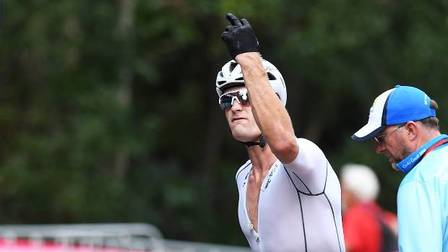|
Much like his Hans Christian Anderson story tale Emperor counterpart, it isn’t a stretch to think that Prince Andrew has relied on significant waves of unrealistic and ill informed sound echoes to lead him to take part in one of the worst PR tactics since …well possibly the last royal family ‘reveal all’ interviews a few decades ago. Oprah set the standard for providing a platform for those in the public eye to bare their souls and seek redemption - from the audience if no-one else. It’s Comms 101 to fall on your sword if an individual or organisation crosses boundaries that may affect their key audiences - especially in the commercial or political world where the will of the people can have far reaching consequences to your continued success or otherwise. Conversely if you or your organisation are innocent and beyond reproach then a strong stand being taken to demonstrate innocence is another valid ‘ tool’. However, it’s not quite so clear cut if you have difficulty in being able to clarify the facts. To participate in the court of public opinion, you need to have a clear position of what you are wanting to achieve out of this very public baring of the soul. You also need to be contrite ( if guilty) as that is what the greater public expects - even though many could ill afford to have the same introspection of their own lives. Prince Andrew did not appear to have any clear idea of what was to be gained from this excruciating interview - or if he did, he went wildly off script. He was also nowhere near as contrite as the common man ( or woman) would expect - and this is critical. In fact one of the commentators hit the right note when he said the interviewee was,” entitled, obtuse and shamefully unapologetic to victims”. Again 101 stuff - always be relatable and express sympathy for those affected whether claiming responsibility or not. So instead of drawing the sought after line under the months of what must be excruciating media spotlight, this interview appears to have done quite the opposite. It will continue to create content and damage, far beyond the real public interest. It’s always a tough call to advise clients in situations as high profile and incendiary as this involving power, illegal activity, royalty, sex and scandal but this was truly a poor call. I struggle to see what mitigating factors could have been put forward to make the decision to go ahead with the interview. The Emperors Clothes have now been seen by all for what they really are. Oprah has a lot to answer for. It looks increasingly like Prince Andrew does too. For more, this is an interesting insight from the UK's Guardian
0 Comments
 A highly regarded business colleague and friend, Sheelagh Caygill, recently wrote an article about how actively sharing political views can help shape your reputation and it started me pondering about something I’ve been mindful of, and fascinated by, for many years. What impact do those close to you have on your personal reputation? Do they add to your mana ‘capital’ or do they continually drain your personal reputation bank? Look around at those that impact most significantly on your life : your company or organisation,, colleagues, partner, family, friends. Have you ever considered whether any have a detrimental or additive value to your own reputation and how the world sees you? And does it matter? Recently a high profile court case played out in the media when actor Felicity Huffman was found guilty of a crime. Her equally high profile actor husband, William H Macy kept a deliberately low profile during the case, no doubt for justified fear of being damned by association. It was made clear he had no involvement in the actions of his wife and it was an obvious and strategic public relations move that he be distanced from it. During sentencing, he moved back into the picture as supportive husband - once it was clear he had no cognisance of the wrong doing. It can be assumed that the couple would have much to lose if both had been cast as villains in this playbook, as Macy is a regular movie favourite with a considerable $ value. So, although most of us may not have the multi million $ price tag, we do have something hugely valuable to us all - our greatest asset - our reputation. Some will say that friendships etc are far more valuable than the court of public opinion - however small that might be for each of us. Others may be more tuned in to seeing the behaviour of others affecting their hard won good standing. So where would you draw the line? What behaviour or activity would have to be demonstrated for you to take action to preserve what you have likely worked most of your lifetime to gain? It’s an interesting question and one that each of us will have many and various answers to. But it is worth considering. What would your company or organisation have to do to make you reconsider working with them because you didn’t feel comfortable that their reputation reflected yours? How many friendships would you need to lose before you reconsidered that your partner or family were perhaps the reason people were keeping a wide berth? Some relationships are not so easy to slash and burn. So, in a quiet moment do a little audit of your own. Who adds to your personal balance sheet and who negatively impacts it? Only you can decide whether the cost is worth it. I've been fortunate to have been interviewed quite a few times by Sheelagh Caygill of global agency, Communicate Influence.
Here's a link to my main interview on reputation management. And you can find other interviews on her really valuable and insightful site, including one about the writing of Stand Out and Step Up. Check it out !  Apologies are double edged swords. Do it with truth and good heart and you may be forgiven or at least appreciated. Do it cynically or through a third party and see the wrath of a nation ( in this case) rise quicker than your gold medal winning mountain bike race win. Yesterday, Simon Gaze won gold for himself and New Zealand. A proud moment for many. But amongst his celebrations, he managed to diss his compatriot and second placed, Anton Cooper and accuse him of bad sportsmanship. I'm not going into that part. What interested me was the statement that was made within hours by Gaze , apologising for his comments. Now we will never know who engineered the statement and who crafted it but it sure didn't feel like Gaze. Having been involved in high profile sports campaigns for many years, I'm fully aware that trusted media representatives as well as the Chef de Mission are always ready with their damage limitation statements should the need arise ( and it inevitably always does). It is a fine line ( and a master skill) to write an authentic statement on behalf of someone and balance the needs of the national body and all the stakeholders that represents, including a nation of sports lovers who don't like ungracious winners ( or losers for that matter). This one was not a great example. The statement was so slick and so polished and "appropriate" that it conveyed little sincerity but instead showed a massive lack in authenticity and therefore trust. If Gaze did write it - he should have been given assistance. I'm betting he didn't. The authors of the statement didn't do Gaze any favours. It is a tough job but it's critical to get it right. Many reputations depend on it. |
The BlogMy blog will share thoughts and observations on the ever changing world of reputation. Archives
September 2019
Categories |



 RSS Feed
RSS Feed
